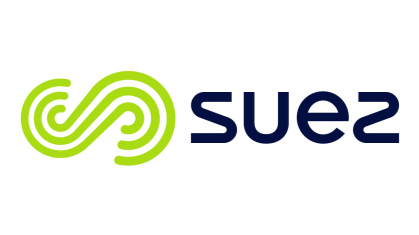
PASCACK VALLEY AREA, N.J.—Following criticism of a proposed rate increase of nearly 12% by six customers—including an outraged River Vale resident—an attorney representing Suez Water said another hearing is likely in July and a final decision on rate increases not expected until fall.
The March 4 state Board of Public Utilities hearing featured two sessions, 4:30–5:30 and 5:30–6:30 p.m., conducted as a seamless nearly two-hour open public comment session. Several of the six callers offered multiple comments and questions over the two-hour hearing.
Suez Water of North America provides services to all eight towns covered by Pascack Press.
While waiting for possible call-ins during the last hour, Office of Administrative Law Judge Irene Jones spoke informally about topical concerns with attorneys and staff for nearly an hour on an open Zoom link without any callers.
Stephen Genzer, an attorney representing Suez at the March 4 state Board of Public Utilities hearing, provided Suez’s rationale for its proposed water and sewer service rate increases before OAL Judge Jones.
State Division of Rate Counsel attorney Christine Juarez said Suez sought an extra $35.4 million in revenues yearly, an approximate 12 percent increase, to help pay for $237 million in infrastructure improvement investments made by the utility. She said “evidentiary hearings” on the increase were scheduled by OAL in July.
The state agency took no position on the rate increase, but previously told Pascack Press it was giving a “close review” to the proposal.
The Rate Counsel office is an in-house state advocate that represents the interests of water utility customers statewide. Juarez said the increases would amount to a $10.36 increase to its average residential customer.
River Vale resident John Vedral charged that over the last 12 years, Suez “has received rates of return at least double to what they should have received.” He repeatedly noted that the utility did not “deserve” an increase and that they should not be making a higher return on investment than a traditional 30-year bond.
He said the utility should get about a 4% to 5% return, not 9% to 10% as he estimated. He said that “excess money” generated by the utility should come back to the customers. “I look forward to being refunded a significant amount of money.”
Vedral requested Rate Counsel “to take a look at what (Suez) is spending money on.” He also criticized what he viewed as inefficiencies at Suez, noting he has observed people watching and not working at Suez work sites. He also suggested Suez use its own traffic monitors on side roads rather than local police due to cost.
He advised that Rate Counsel “watch out” for Suez and suggested that in his “personal observations” he noted regulated utilities “are very innovative” when it comes to seeking rate increases.
All five other callers resided in a townhome complex, Bald Eagle Village, in West Milford, and complained about the high water and sewer bills being paid to Suez, charging that they paid nearly triple or quadruple rates paid by other similar homeowners.
Suez employee Gary Prettyman said that the average water bill of 3,000 gallons would likely go up 19% to the West Milford residents to about $32.90 from $26.40.
West Milford resident Cheryl Culligan said the residents cannot pay for such “huge increases” on top of already high bills. Others echoed her complaint, with another noting residents have no other options to choose from in terms of water and sewer service.
Genzer told callers that residential water use “has gone up and commercial customer usage has gone down.” He said that Suez was “entitled to a rate of return on what they’ve invested” including the $237 million in recent investments.
A Suez press release said the infrastructure investments include lead pipe removals, water main upgrades, treatment plant upgrades, modernized control systems, replacement of aging water and sewer pipes, water tank rehabs, and workplace management.
Genzer said since Suez filed its case for a base rate increase for water and sewer service in November, the utility has received 500–600 questions from Rate Counsel and BPU staff. He said Judge Jones would likely make a decision by the fall on the case, and send it to the state BPU, which then makes a final decision to approve, reject or modify the rate increase.
Another Suez rate increase petition to conduct a proposed customer lead service line replacement program remains undecided by BPU. That petition was filed in March 2019, after Suez had reported in January 2019 high lead levels in about 15 percent of over 100 customer lines it sampled over six months in late 2018. That led to ongoing efforts to replace utility-owned lead pipes, and proposed efforts to replace customer lines.
Since then, however, Suez has replaced hundreds of its own water service lines and goosenecks, or connecting lines, that contained lead.
In its November petition to increase base water rate charges, the utility spells out its justifications. It said it continues to make “significant capital investments” to its utility plant “in order to continue to provide safe, adequate and proper service to its customers, and seeks in this proceeding to recognize those investments in rate base.”
For example, it said, “Since its last base rate case order, (Suez) has invested over $237 million in facilities to serve customers.”
“(Suez) is entitled to earn a fair return of, and on, these investments, and this should be accomplished through the updating of rate base within the context of the implementation of the results of a base rate proceeding. Second, (Suez) continues to experience increases in certain categories of costs, including labor and labor-related expenses, power and waste residual expenses which costs should be recovered if they are included in base rates,” states the petition filed with BPU.
